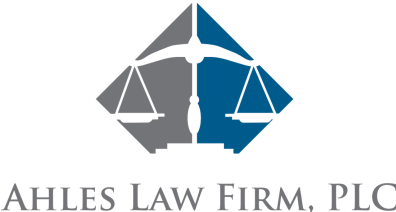As lawyers, we're too often accused of speaking a different language. Here's a list of terms you may hear us use frequently or may even see in some of your documents. As always, feel free to ask us questions whenever you don't understand something.
- Dissolution: Formerly known as a divorce. A dissolution is the separation of a marriage.
- Spousal Maintenance: More commonly known as Alimony; spousal maintenance is a sum of money paid each month by one spouse to his or her ex-spouse so the receiving spouse may continue to live at the standard of living the parties had during their marriage.
- Physical Custody: There are two types of physical custody: sole and joint. In the past, the physical custody label played a large role in how child support was calculated, but under the modern law it is largely irrelevant. Physical custody speaks to the parent(s) with whom the children live.
- Legal Custody: Legal custody concerns the right of a parent to make decisions concerning the children's health, education and religion. Minnesota law presumes joint legal custody is in a child's best interests.
- In Forma Pauperis (IFP): Latin for "in the manner of a pauper." An order for proceeding in forma pauperis allows an indigent person to proceed without paying the costs of court filing and other fees.
- Order for Protection (OFP): In a situation where one party feels threatened by his or her spouse, the threatened party may seek an order for protection, which operates similarly to a restraining order. Once the court has issued an order for protection, the parties may not communicate directly with one another except as outlined in the order for protection.
- Petitioner: The person who brings a family case before the court. A petitioner is more commonly thought of as the plaintiff.
- Respondent: The person responding to a case.
- Intervenor: An intervenor is a party with an interest in the case but who was not originally named in the pleadings. The third party may bring a motion to intervene so that the court's decision considers the interest they have in the case.
- Child Support: Money paid from one parent to another to help care for and provide for joint children.
- Custody Evaluation: A custody evaluation is a tool used by the courts to help determine which parents should have custody of the minor children and what the parenting time schedule should look like. The evaluation is performed by a third-party neutral, and can be completed by someone hired by the court or a private evaluator. The evaluator will meet with the parents and the children to observe how the parents interact with the children. The evaluator will also typically review relevant records (i.e., school, medical, etc.) in making his or her decision.
- Parenting Assessment: Similar to a custody evaluation, a parenting assessment is an evaluation by a third party to help the court evaluate a parent's ability to parent. The parenting assessor will make recommendations for parenting time schedules based upon the children's feedback and the abilities of the parents. The assessor will also sometimes make recommendations to the parents on how the parents may parent more effectively.
- Temporary Order: A temporary order is an order issued by the court while a case is still pending. In family cases, a temporary order usually sets things such as parenting time, custody, child support and spousal maintenance. Because the order is issued before the end of the case, the courts and the parties must revisit the issues in the order before making a final decisions.
- Judgment and Decree: A judgment and decree (J & D) is the court's final decision in a case. It is an order that resolves all issues before the court. A J & D can be issued following either a trial or a stipulation of the parties.
- PLC/Professional Limited Liability Corporation: A limited liability corporation designed to limit the business owner's liability for actions of the corporation. A professional liability corporation is typically used for lawyers, doctors or accountants because it does not allow the business owner to limit his or her liability for malpractice. This means a lawyer-business owner can be personally responsible for the malpractice of the business.
